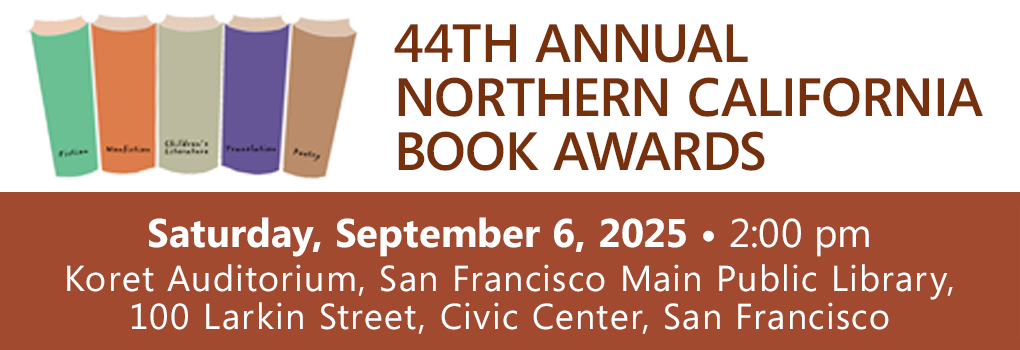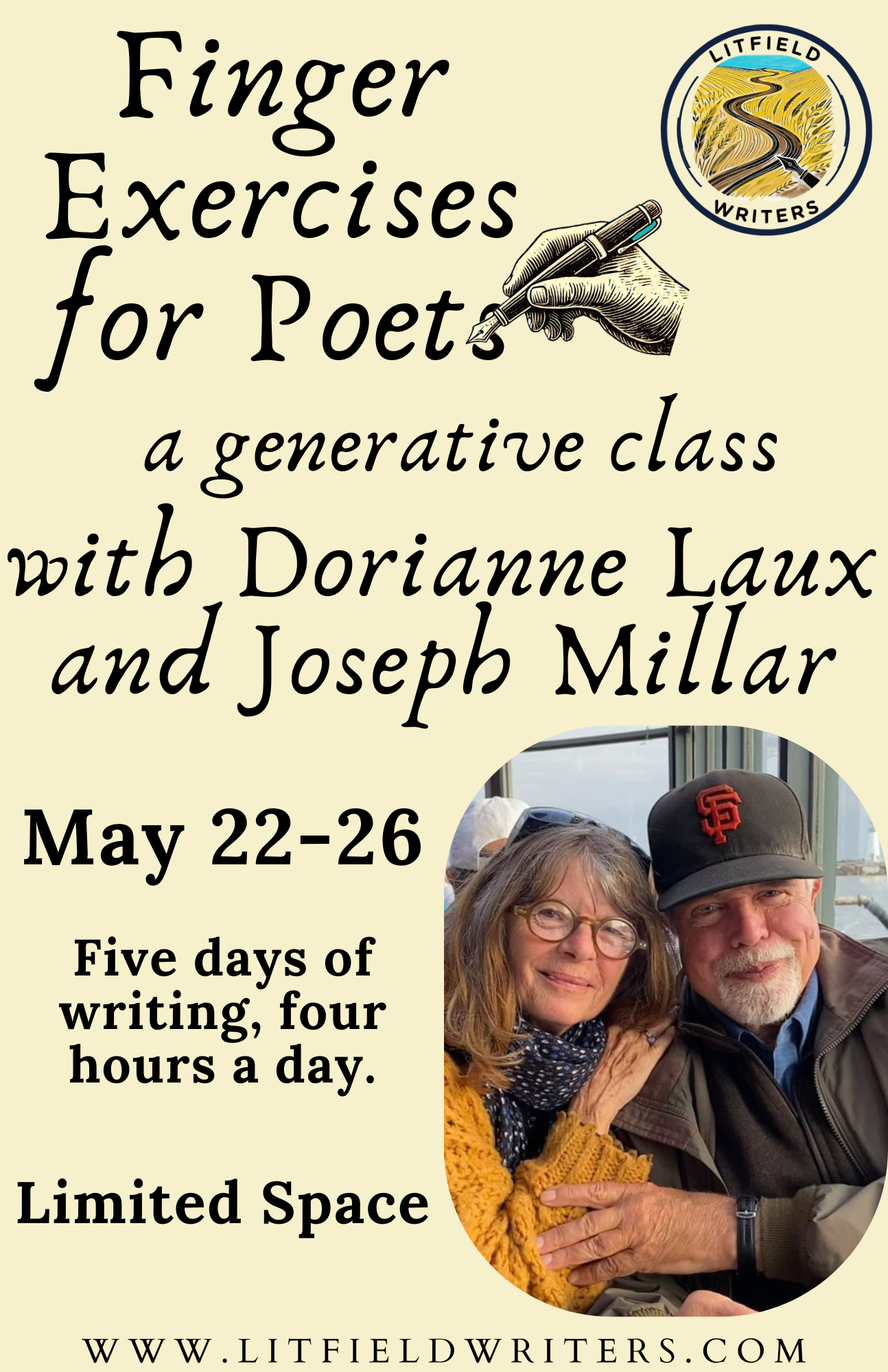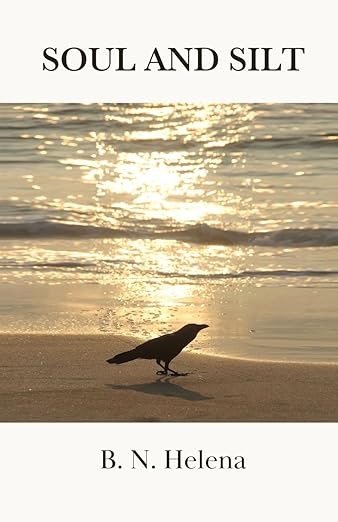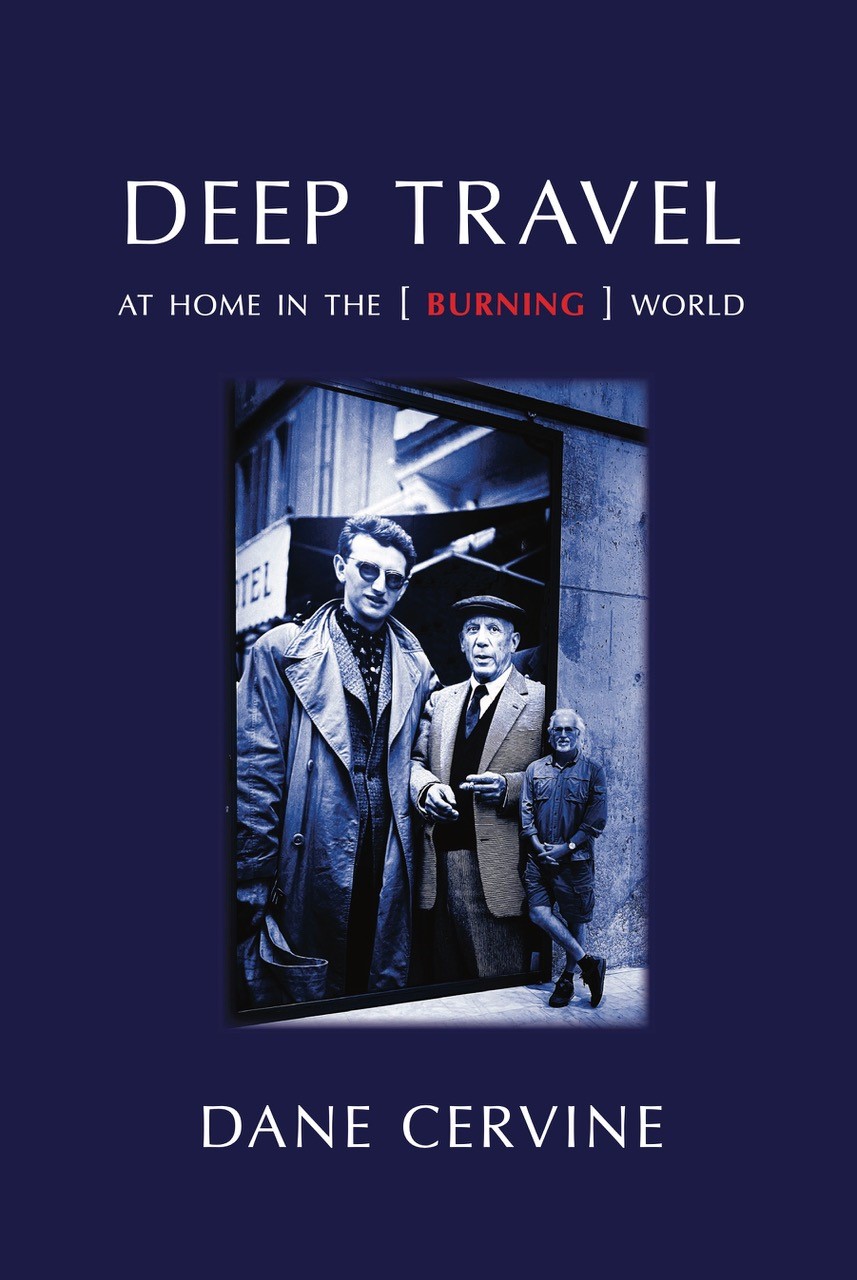
Walking Deep
by Richard Silberg
So Far So Good: Final Poems, 2014-2018, by Ursula K. Le Guin, Copper Canyon Press, Port Townsend, Washington, 2020, 100 pages, $16.00 paperback.
Abandoned Poems, by Stanley Moss, Seven Stories Press, New York, New York, 2018, 166 pages, $18.95 paperback.
MFA AND NOW EVEN PhD Creative Writing programs funnel hundreds, maybe thousands of young 'professional' poets into American poetry each year. So our poetry tips to the new, continually hones its cutting edge. I enjoy and, for the most part, applaud that; much brilliance dazzles there. But in this piece I'm going to look at two decidedly older poets, Ursula K. Le Guin, who died in 2018 at eighty-nine, and Stanley Moss, still kicking strong now in his nineties. Doubtless this has something to do with my being rather a geezer, myself, but it has more to do, I think, with my perception of depth, a wiry toughness, with two poets, each in their very different ways solitary, idiosyncratic, each trenching richly into their long, fertile pasts.

Ursula K. Le Guin. Photo by Eileen Gunn.
Le Guin, who is an all-around woman of letters, novelist, poet, essayist, translator, is better known for her world-creating, science-fiction novels—she attacked this kind of genre segregation in her book of essays Words Are My Matter and elsewhere, arguing that separating science fiction off from other novels blinds us to common, overarching literary worth—than for her poetry, but I want to show here how she gleams as a poet. She's become something of a legend ironically late in her career. She always had a coterie of ardent admirers, but that admiration has suddenly snowballed. Sometimes death is a poet's best career move. Stanley Moss is not anywhere near as in vogue, but he's long been a name in poetry, long been recognized as a formidable, volcanic poet. They're opposite in several ways. Le Guin tends to be brief; Moss leans to the gigantic. Le Guin tends to be modest, unadorned; Moss orchestrates, goes symphonic. And in these two books they look at approaching death in arresting and very different ways.
To the Rain
Mother rain, manifold, measureless,
falling on fallow, on field and forest,
on house-roof, low hovel, high tower,
downwelling waters all-washing, wider
than cities, softer than sisterhood, vaster
than countrysides, calming, recalling:
return to us, teaching our troubled
souls to your ceaseless descent
to fall, to be fellow, to feel to the root,
to sink in, to heal, to sweeten the sea.
That's modest Le Guin, risking the trite. But if we open to it, it has, I think, the grace and compassion of Shakespeare's "The quality of mercy is not strain'd. It droppeth as the gentle rain from heaven.…" Deeply felt and unaffected, the poem skillfully uses its multiple alliterations for power and melody; it deftly plays its three beat rhythms, line on line, opening out at "return…" in an appeal, a sonnet-like mini-volta, driving again with "to fall…" through to the end, its lovely conception of fresh on salt that we feel in the almost-sigh of the two long 'eee' sounds,
There was a jar in Oregon
not this time in Tennessee,
on which I set a crimson pear
without a reason but to see
the charm of chance propinquity.
Playing against Wallace Stevens's "The Anecdote of the Jar," that's a quick shot of Le Guin's flash and wit. Or here again in another extreme shorty on the next page:
The Fine Arts
Judging beauty, which is keenest,
Eye or heart or mind or penis?
Lust is blindest, feeling kindest,
Sight is strongest, thought goes wrongest.
That's not only skillful and witty, it also gives us a sense of her esthetics, and if we nod for a moment towards Keats's truth and beauty, what I'll call her moral epistemology.
The People
Some people have begun to come into my dreams
from a long way away,
traveling over the mountain passes
that nobody living knows.
Old people who smell like fog
and the soft bark of redwoods.
They talk together softly.
They know more than I know.
I think they come from home.
Eerie. Comforting. So very cut back and simple. There's more than a hint here of what many Le Guin fans know: that she's the daughter of the acclaimed anthropologist Alfred L. Kroeber. But more importantly for us here is the sense this poem gives of a kind of geological shift in her unconscious mind—I'm taking the poem at its word that these people come in dreams—towards going "home," towards dying. How expansive, receptive that "They know more than I know." As if the poem wants to listen in on their soft talking, wants to 'know more'.
There's one sequence poem in the book, "So Far," comprising twelve short sections that seem both to look back at the life that she's lived and to lean forward, beyond. It has an explanatory epigraph, saying that it's taking as a metaphor Lt. William Bligh's perilous trip in an "overloaded open boat" four thousand miles from Tonga, skirting Australia, to Timor in Maritime Southeast Asia. I'm just going to quote three sections that give us a feel for the whole.
IV. The Unknown Continent
We are passing the great dry land
far south within the reefs.
Of its people we know only
we don't understand each other
and ignorance is danger.
We dare not come ashore
save on the outermost islands
briefly, to seek water.
I am used to being lonely
but forever to be a stranger
is a strange grief.
That grief is piercing, the point of my quotation. Perhaps to some extent the "ignorance" and "danger" are here to enhance the poem, the reader's vicarious sail-along on Bligh's trip, but I'm sure the grief was also Le Guin's, due in some part to a distancing, an isolation—'isolation' from the Latin insula, 'island'—of extreme old age.
VIII. Timor
The little Latin that I know
tells me timor means fear.
Timor is where I go.
There's no more land, no rest
between me and the west.
And day and night I steer
straight there, for what I fear
is not that landfall:
to lose my way
as I lost my command,
lose strength of hand
so I cannot steer,
the compass of the mind
till no way is left
and blindly day
and night nowhere
to no end drift.
Timor mortis conturbat me is the Latin tag, "The fear of death disturbs me." But I trust her. What she fears is not death; it's helplessness.
XII. Westering
From sunrise the wind blows
always to sunset
going where the stars go
my breath the wind
this little boat my body
its ragged sail my soul
going where the stars go
Brave and beautiful. That brief poem might make a just salute to her whole career.
The last section of the book, "In the Ninth Decade,' is comprised of fourteen poems all dealing with the dreamlike brevity of life and/or the looming of death. I find them collectively so moving that they pin me wriggling on the silly problem of wanting to quote them all. Here, for instance, sounds the empty magnitude of the last four lines in "The Desert Crossing":
The great silence lay behind each dune
like a lion with a woman's head. She sang
in a voice like wind in sand, a long
answer to the question that it did not ask.
Or take these concluding lines of "Leaves," a poem that begins, "Years do odd things to identity":
Might as well say I am the shadow
of a leaf of the acacia tree
felled seventy years ago
moving on the page the child reads.
Might as well say I am the words she read
or the words I wrote in other years,
flicker of shade and sunlight
as the wind moves through the leaves.
Ending "The Old Novelist's Lament," that begins, "I miss the many that I was, / my lovers, my adventurers, " she writes:
I wish they might come back to me
and free me from this cell of self,
this stale sink of age and ills,
and take me on the ways they knew,
under the sky, across the hills.
which leads psychologically, if not directly in the sequence of these poems, to her straight-on contemplation of the end of her life:
Desire and Fear
A willingness to die is my desire,
not of the mind alone but of the weary heart and weakened bone.
My fear is that the body, always wanting more,
will clutch at flames of fire sooner than leave me free to go
on through the open door.
And ferociously in the next poem she writes:
The Combat
On the farthest margin of old age
in thickets and quicksands of half-sleep
the fat grey serpent of despair
wrestles with the thin tiger of my rage.
The tiger's teeth meet in the snake.
Break, writhing backbone, break!
I'm moved by these poems, for what they say, the human situation they speak, but also because here, in the throes of her final age, she's as honest and clear-hearted as she has always been.
The last of these poems comes a few pages on, and it steps back quietly, turns serene. It's in two parts; here's the second:
The lowest, the neap tide,
that bares long reaches
that were deep underwater
where the slope grows steep,
is when to walk out so far
that looking back you see
no shore. Under bare feet
the sand is bare and rippled. Dark
of evening deepens into night
and the sea becomes sleep.
STANLEY MOSS FRONTS this collection with four epigraphs. The first is from Paul Valéry; it's in French whose translation would be, "A poem is never finished, only abandoned." So that's the gloss for his title, Abandoned Poems. But the title stands free of that sense, of course, speaks for itself, and it conjures for me a flock of orphan poems, forlorn, perhaps, but perhaps also resentful of their author, perhaps mutinous, wandering, rambunctious. It savors somewhat of the comic, leans even towards the self-deprecatory. All of these suggestive possibilities help to usher us into Moss's erudite, multi-hued sensibility, complex, maze-loving, equidistant between the serious and the jocular, hair-triggered between the two. Here's a short sequence from his five-page poem "Laughter":
Wordsworth beheld "the sea lay laughing at a distance."
If water equals time, providing beauty with its double,
let it be. There are water clocks.
Greek and medieval candle clocks
sometimes make a laughing clock:
ha, haha, hahaha, up to twelve.
I wish I could make this verse a laughing clock,
I hear the speechless sun
in a ripple of laughter on water.
Obviously that's comedic in its inspiration, but the first two lines of that quotation as well as the last two could be called 'seriously' poetic in their pure, even somewhat difficult loveliness, as in that notion of time's equal doubling beauty.
Whereas his poem "Street Music" begins with the grim World War II story told to him by his literary friend, who was a captain battling the Nazis at Monte Cassino: an infantryman was "almost shot in half" part way up the mountain and screamed in agony through the night. At dawn the captain ordered a corporal to shoot the soldier, and when the corporal refused, he shot him. Moss's reaction, he tells us, was not to judge him a murderer but to think, "…It happens, / war is war." This same friend, we're told, also invites him to William Carlos Williams's funeral in Rutherford, New Jersey. The poem then winds on, complexly, through Williams's resolving "the conflict / between form and freedom in verse, / stepped lines" —the whole of "Street Music" is written in these "stepped lines"—through an imaginary double-decker bus ride along the Tiber in Rome, during which we hear quotations from Rimbaud and Denise Levertov. Here's how "Street Music" ends:
The poets head back home, to their lives and graves
the most serious appear
the personification of frivolity, all of them write poetry
that would be impoverished
without nonsense.
Traversing in the opposite direction from "Laughter," serious to 'frivolous', his ending there erects one of the pillars to his poetic temple, the Mossian pillar of "nonsense." But along with it, its fancy and willful arabesques, comes a deep real flavor of modern, i.e., twentieth century poetics and poetic history.
Sob
You loud in cloud. You end in mend.
You light in flight. You age in language.
You other in mother. You know in snow.
You ought in autumn. You fly in butterfly.
You low in willow. You rye in rhyme.
You rest in forest. You cunt in country.
You mud in Talmud. You man in woman.
You cry in Christ. You hell in shell.
You awe in law. You odd in God.
You ache in break. You bell in humble.
You ear in fear. You art in heart.
Your sobbing breaks my speech apart.
Here we have another kind of nonsense, a poem in let's call it jibberish, what a psychiatrist dealing in a strain of schizophrenia might call Klang association. As an aside, let me add, first, that this is a unique poem in the book, that there's no other poem here remotely like it, and let me also register my pleasure in being able to quote a Moss poem entire—most of his are much too long for that. But back to the nonsense point, the wit and skill in this shorty positively shine, its use of anaphora, the music of the rhyming inside each of these four-word chant phrases. Take any one of them and follow the chain of ideas and feelings each evokes. Each could be a prompt for its own poem. Now take the final line: the sobbing here, referring back to the poem's title, seems to be an esthetic weeping, in the way, say, a Beethoven symphony's pure beauty and power might bring tears. How rich this nonsense is in emotion, in verbal agility, in insight.
Few of the many other poems in the book feel as finished, perfected as this unique shorty. Abandoned Poems feels poured out like lava, poems left to set as they erupted, Moss getting them down molten to roll with his ideas, express them and make room for the next.
Back in 1290 AD London,
I don't know what would have happened to me.
I might have made it across the Channel—
no donkey or dog, God knows. Sorry, God
would not have known or given a damn.
Some Middle English in my head,
chilly, I thought it best to head south.
The compass had not yet arrived from China,
a person like me might have known
the stars teach direction. A venerable rabbi taught,
"Moss often grows on the north side of trees,
there is safety among swarms of blackflies and bees."
I might have descended past Aix-en-Provence,
in need of rest, stopped, picnicked on wild strawberries.
I hope I read Roman de la Rose
before I crossed the cruel Catholic Pyrenees,
passed some gothic days and nights
in Barcelona, "Ciudad de mis amores,"
That's from "Get Out, " early in the book, speculating on his trans-temporal fate as a Jew had he been in London when the Jews were expelled from England. Historical erudition, a sense of the multilingual, of identification as a Jew by birth, culture, and fate, but with an obviously dodgy, disrespectful, perhaps atheist relation to God—all of that bustles out in the poem, and, above all, we read a man striding vividly with his fantasies.
My knees were never bent in prayer.
I have a very busy mouth,
experienced eyes that look straight into your eyes, baby,
my nose broken by a friendly fist—
shaking paws, and the back of my head scarred:
age 12, I put my head in front of a rock
thrown by a pal in our rock-throwing contest.
I have a World War II limp that goes and comes back.
The keloid scar across my belly
doesn't show if I wear a shirt.
I almost forgot my severed Achilles tendon.
I'm a volunteer—
following orders, a prenatal hate.
I respect the tip of my tongue scar,
acquired age two,
when I fell down a bluestone stairway,
forked my tongue
making my way to my grandmother's piano.
That passage, opening "Scars, Moon, and Old Stories," familiarizes us a little bit more with the grizzled warrior we're dealing with, the mischievous childhood, again the indifference or disrespect for God. I don't know what "prenatal hate" refers to, the Nazis?—the poem doesn't tell us; it just powers on. There's even a hint of the serpentine in "forked my tongue." We might infer that, just as he balances between serious and comic, he paces independently between God and the Devil. In his poem "Motto" earlier in the book he opens:
Montaigne's motto, "que sais-je?" My credo
not a question, "the Devil generalizes,
angels are specific." He is Lord, and I
a footman in the château of opposites.
For the hell of it I say, "the Devil is specific,
angels generalize." What do I know?
The Devil takes us to bed where he does
opposite things, licks up and down, leaving
permanent blisters wherever his tongue
plays specifically. Angels generalize,
they lead us all by the hand everywhere.
My nameless angel never tells me where I am.
Quick, witty tossing off of "For the hell of it" and "What do I know?" repeating Montaigne's French motto, but the beautiful phrase "a footman in the château of opposites" tells us everything we need to know about our inference just above.
Let's move to another of his metaphysically tinged-poems, "How I Came to Meet the Fates." I'm going to excerpt it in four sections:
I was walking in Puglia,
I found myself almost lost, uncertain,
the sandy woods full of violets and nightshade,
I came to a house half-cave, I walked through
an open door between olive and fig trees
in a village where they still speak Greek.
I saw three large women dressed in black and silver,
silver threads from distaff to spindle.
…………………
The three were not persons, still they were ladies—
one wore a necklace, a live blind snake,
no, the necklace was a string of eyes
sometimes blue, sometimes green.
I have it, three sisters, personifications.
…………………
…Then I asked,
"Fates, make me a sweater
of many-colored threads that Achilles
might choose rather than a sword." I came to the point:
"Name the day, the time, the place."
They said, "a Saturday night after we've finished
your turtleneck sweater, longer than the life
of a turtle mdash;if you don't fall first."
…………………
…I saw an actor, a tragedian
playing Tiresias as man and woman.
When he spoke, an eagle left his roost:
"poets are masculine, poetry is feminine,
the poem the child."
I kissed the Three Fates goodbye.
They used their rough tongues, I thought my thoughts.
Informed by all occasions,
a life full of despites,
I'll have one last love affaire.
I'll die an upstart.
Before the Fates I listen to Boris Godunov,
His dying words "I am still Tsar."
I'm quoting that for the taste of it, the beginning somewhat reminiscent of the beginning of The Divine Comedy, the moody, spoofy portrayal of The Fates, his idea of poetry as sexual birth, but primarily to bring us to the last point I want to cover, Moss's attitude towards death. Here are three short excerpts from "June 21, 2017":
A few candles on my birthday cake.
One puff of my lucky breath, I blow
the new little flirtations out.
I salute Mr. Death, his concubines,
and veiled Mrs. Death,
his is an invisible family,
……………
What do Mr. and Mrs. Death do in bed,
what do their "private parts" look like?
Find out for yourself when they fuck you.
……………
Death is a many-colored harlequin.
He twirls a lightning walking stick, I choose
not to use on my 92nd birthday.
So, following on the sexual birth of the poem, we have the sexual death of the poet, or more accurately, all our deaths by copulation. Following on that gamey conception he changes his metaphor, gives us a more lighthearted, comedic death whose offer of a twirling walking stick he airily refuses. So, on a first take, we infer Moss's superior, somewhat disdainful attitude to Mr. Death.
He has a very different attitude, though, to the deaths of his friends. In "January 2nd, 2018" he encounters a nun, who tells him, "Quien pasa un Enero, vive un año entero," i.e., 'Who passes through a January, lives an entire year'. The poem then mournfully relates all the painful deaths of his friends who died during that year, including the nonfatal stroke of the magnificent poet Yusef Komunyakaa, paralyzed on his right side, who instead of saying goodbye over the phone, says, "Man, keep the faith." Moss ends his anguished poem:
He was my oldest friend.
At seventeen, we joined the Navy,
bunked together. Later he lost a leg,
had six children, twenty-nine grandchildren last count.
He had the heartiest laugh I ever heard,
it rocked the ship. I loved him.
I do not abandon ship. I bail with my hands.
I'm not afraid to say I don't know.
I wish the world a Happy New Year!
Brave, stubbornly looking up. And here, towards the end of the book, is another short poem, "I Choose," that sums up his mortal attitude:
I choose to write a poem
when my left ankle's broken, purple,
and my right ankle's swollen blue,
both knees banged, twice their usual size,
both my long legs "killing me,"
while a famous angel is really killing me.
I separate physical pain from the real thing—
the real thing, the soul usually dies
before the body. My soul is dancing,
welcoming spring in the garden
on a beautiful June morning,
ready to live forever.
Stanley Moss, lustfully embracing life, saluting Mr. Death with his middle finger.
So, I've been looking at these two memorable poets for their poetry first and above all, but second because in their extreme age they present us with their profound, multi-layered life experience. Has that made them wise? Each reader will decide for his or herself. They give us, as well, two very different attitudes towards their looming ends, rich human models to sample, taste, and perhaps learn from on our own mystery journeys. ![]()
Richard Silberg is Associate Editor of Poetry Flash. His recent poetry books are The Horses: New and Selected Poems and Deconstruction of the Blues, recipient of the PEN Oakland-Josephine Miles Literary Award 2006. Author of Reading the Sphere: A Geography of Contemporary American Poetry, and other books, he co-translated, with Clare You, The Three Way Tavern, poems by Ko Un, winner of the Northern California Book Award in Translation. He also co-translated, with Clare You, Flowers Long For Stars, poems by Oh Sae-Young; This Side of Time, by Ko Un; and I Must Be the Wind, by Moon Chung-Hee. He lives in Berkeley, California.
— posted July 2020








































 So Far So Good: Final Poems, 2014-2018
So Far So Good: Final Poems, 2014-2018  Abandoned Poems
Abandoned Poems 















 Mississippi
Mississippi 



















































































